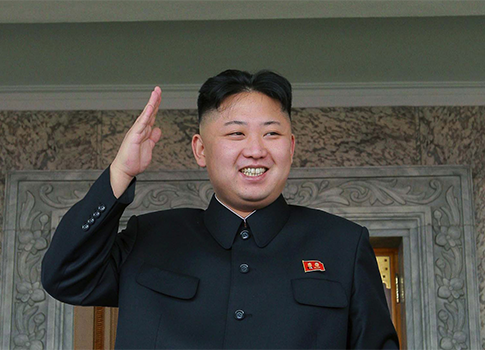BEIJING—The People’s Republic of China (PRC) remains the chief benefactor of the neighboring Democratic People’s Republic of Korea, but as North Korea’s dependence on China increases, China’s influence over the country appears to be decreasing.
U.S. envoy for the DPRK Glyn Davies traveled to Beijing the week of Jan. 26 in order to try to convince the Chinese to put pressure on the North to abandon its nuclear weapons and missile programs.
However, Washington may be less than satisfied with the willingness or ability of the PRC to affect change in the DPRK’s behavior.
Being the "iron lung" that keeps the North from collapsing—as one Beijing-based analyst of the DPRK described it—in the form of food aid, energy assistance, and political support does not translate into a more authoritative Chinese say in the country’s affairs.
Observers of Pyongyang in China say the North Korea is becoming a "closed box" in terms of understanding who is in charge and how decisions are being made by the leadership.
"No one here really knows what is going on in the DPRK," said one analyst. "And there is increasing skepticism that this young kid (current dictator, Kim Jong-un) is really calling the shots. Meanwhile, the linkages that the PRC used to have with the North have almost all disappeared and there are almost no opportunities to re-engage along some other level."
Military ties between the two communist states that dated back to the Korean War are virtually gone. That older generation of military leaders who fought alongside one another and continued to cooperate long after the war was over has gradually died off. There is very little engagement and even less trust today within the current generation ranks of the two military establishments.
The December 2013 purging and execution of Kim’s once all-powerful uncle Jang Song-thaek caught Beijing completely off-guard. The ousting of Jang also underscored the lengths to which the regime in Pyongyang will go to keep the PRC guessing and otherwise in the dark about what is really happening inside the closed state.
Beijing lost the one individual in the DPRK leadership with which it had a close, working relationship. Jang also had control over the growing businesses along the border with PRC that are located in the DPRK’s special economic zones.
Chinese intelligence had missed – or chose to ignore – the warning signs that Jang’s downfall was imminent.
Jang had been the primary point of contact in relations between Beijing and Pyongyang. He was trying to promote a reform of the North’s economy similar to what the PRC tried to sell to the previous DPRK dictator, the late Kim Jong-il.
On his 2006 visit to the PRC the elder Kim was given a VIP tour of what had been accomplished in Shanghai – harnessing government resources to build a showcase city for international business and allowing free-market mechanisms to operate, but with the hardline political control of a communist police state still in charge at the top. Beijing had hoped Kim would try something similar in the DPRK and put the nation on a path to prosperity.
Jang acted as a regent and consigliore once the younger Kim assumed leadership. Jang tried approaching a North Korean version of the Chinese model for economic development, but the vengeful nature in which Jang – along with members of his family – have been eradicated suggests his attempts at reform were unsuccessful.
Following Jang’s execution, South Korean news outlets cited intelligence sources in Seoul stating that "extensive executions have been carried out for relatives of Jang Song-Thaek," and that "all relatives of Jang have been put to death, including even children."
The executions of Jang’s family members reportedly included Jang's sister, Jang Kye-sun, her husband Jon Yong-jin, who was the ambassador to Cuba, and ambassador to Malaysia Jang Yong-chol, who is a nephew of Jang, along with his two sons. One source said some members of the family were shot at point-blank range with a pistol in front of others if they resisted being forced out of their apartments.
"What governments like the PRC fear more than anything else is unpredictability and/or instability," said a colleague based in Beijing. "Not having a pulse on what is happening in Pyongyang makes the Chinese communist leadership very anxious because anything can happen with little or no warning: another nuclear test or missile launch or – even worse – a breakdown in the control by the authorities that could lead to an implosion of the regime."
